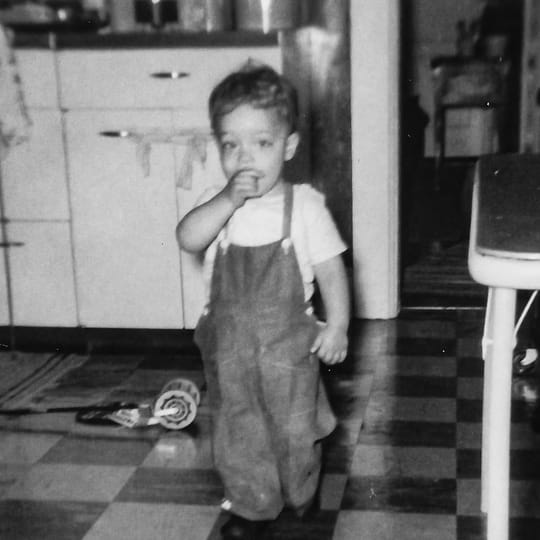
Things I Would Have Liked to Have Known When I Was Younger
Yesterday was my birthday. 70 years old.

The 60s are gone, for good, for me, as are my teens, 20s, 30s, 40s, and 50s.
Geriatric and impotence jokes are starting to appeal to me.
When you hit this age, it gives you pause. You now know, without any doubt, that you will soon be dead. People love to rebuke my reality-based comments with things like, " You look great," or "you will be good till at least 90 with the shape you are in." It is a well-intentioned effort to help me, and themselves, feel better about the brute fact of death.
Nice, but it doesn't change reality. I can see the edge of the cliff of life in front of me more clearly than ever, and I don't know how much farther it is exactly to the precipice.
Perhaps it was my clinical career caring for so many people with cancer and so much suffering that played a role in my willingness, actually insistence, to face it gently, patiently, and with compassion.
Having said that, this business of being human and facing our mortality is hard. It is made much harder by the bittersweet poignancy of knowing that I will never see the people who are so important in my life again.
My wife Lea and I have started to talk about these realities a bit more openly. Tough stuff, to say the least, but the conversations or brief acknowledgments all foster a sense of gratitude for what we have now, right now, in front of us, today.
Since that is really all there is, this moment, right now.
Despite the many fuckups and things that I have done poorly over these years, I only have one regret - that I did not pursue the resident leadership training that I had started as program director of surgery at the University of Minnesota. It was needed desperately then, and it is desperately needed now. It was a missed opportunity to make a difference in our surgical world.
So that is my only regret. I could easily regret a mountain of things, but I believe my life unfolded as it did. The more I reflect on it, the more I feel that my life had a life of its own and that, in some ways, I (that "I" that feels like it is sitting in the captain's chair inside my skull floating around in my brain tissue) was merely an observer of the Michael Maddaus enterprise (I will spare you from any further metaphysical musings.)
But I do believe, in the depth of my soul, that I did the best I could at the time with what I had at the time. To quote Teddy Rosevelt:
“It is not the critic who counts; not the man who points out how the strong man stumbles, or where the doer of deeds could have done them better. The credit belongs to the man who is actually in the arena, whose face is marred by dust and sweat and blood; who strives valiantly; who errs, who comes short again and again, because there is no effort without error and shortcoming; but who does actually strive to do the deeds; who knows great enthusiasms, the great devotions; who spends himself in a worthy cause; who at the best knows in the end the triumph of high achievement, and who at the worst, if he fails, at least fails while daring greatly, so that his place shall never be with those cold and timid souls who neither know victory nor defeat.”
I have known the triumph of achievement and the shocking pain of serious failures, and I have no regrets about them since they were inflection points that inevitably caused growth and change.
So no regrets, but there are skills I regret not having earlier in my life. If I had had them, it would have made my life, and the life of others in my orbit, more pleasant and fulfilling.
Here they are in no particular order - but please note that like all of us, I am a work in progress. I screw up regularly. I work at it, but like working out at the gym, you have to be intentional and as consistent as possible.
Here they are in no particular order:
- To see people for the unique human beings they are, with all their strengths and imperfections, and to embrace their uniqueness to the best of my ability. As Anais Nin said: "we don't see the world as it really is, we see it as we are." The ability to drop one's self-oriented filters to see the world and other people through their eyes is a superpower. In particular, I wish I could have been better at this with my wife and children. Once I stopped seeing their world through my mental binoculars, not only did my relationships deepen, it was also freeing, since I learned to accept them for who they are, and not be attached to who I thought they should be. For me, it took a 2x4 upside the head to wake up to this.
- How to really listen. This is connected to number 1, because if you can't really hear and feel what someone is saying or experiencing, you can't really see them for who they are and what makes them tick. This is a tough skill to develop. It takes dropping one's agenda, paying real attention to what someone is saying and feeling, noticing nonverbal cues, not needing to be "right" all the time, and actually being curious about the other person and their perspective.
- Not trying to fix people and everything. This is a surgeon's superpower. We are inculcated with the desire and ability to solve problems with great efficiency and effectiveness. But like all good things, they are good until they are not. I will never forget the day I was sitting on the toilet (just peeing) and "suggesting" some things to my wife (who was at the mirror putting makeup on) when she turned and said to me: "I am not your goddamn project." Ouch! Reining in this tendency had a massive impact on the degree of psychological safety that my family and others felt in my presence.
- Learned about my blind spot much earlier. As part of a 360 evaluation, one area of improvement listed by several people was how I tended to bowl over other's opinions (one colleague and friend said of me - "you are a force to be reckoned with" and it was not framed as a compliment). The real kicker of a written comment was this one: "he is like an abusive boyfriend that you absolutely adore but can never be sure won't slap you." I shared this comment with my children (not easy), who agreed wholeheartedly with it. It turned out that they did not want to come to me with their problems because they knew that my response was likely to be "just buck up, get over it, and move on." I fixed this massive tendency of mine by working on 1, 2, and 3 above. We ALL have blind spots. It takes courage and ego strength to face them, but the payoff is massive.
- Embrace (yes EMBRACE) the impermanence of everything. It is good for our mental health and it creates the ability to experience the mixed emotions of bittersweetness - sadness at loss and gratitude and joy for what we did have or experience. Where we humans get into trouble is in our mental attachment to things in an effort to imbue our minds with a sense of permanence and stability. Embracing the impermanence of life is like floating down the river of our lives and embracing the relentless changes in scenery, weather, and currents that are out of our control, and being ok with that reality.
- Equanimity. In a lecture by the renowned meditation teacher Joseph Goldstein on the Waking Up app, he talks about the 4 mental ping-pong games our brains play all the time: gain and loss, praise and blame, fame and disrepute, pleasure and pain. Our minds are like a ping pong ball being batted back and forth between the two opposites constantly.
The two extreme options for navigating the ping pong game are to either simply submit to the forces and live in the trance of being immersed in the game or to become detached from it all and not give a shit. There is a third option - equanimity. Equanimity is the ability to fully embrace our humanness and our experiences without being too attached to the positive ones (e.g. praise) and not trying to avoid the negative ones (e.g., blame).
Equanimity allows us to fully embrace our experiences tightly, but simultaneously hold them lightly. It can lead to a state of peace and joy because one can be like the trunk of a tree - steady and firm and unfazed by the vicissitudes of the environment. - Acceptance of reality. Experiential acceptance is not a rollover, submit, and take what comes attitude. It is a foundational life skill for psychological health that becomes exponentially more important when a major unexpected adversity in any walk of life causes us emotional and psychological upheaval. Experiential acceptance is a nondefensive, yet fully engaged, form of attention to the present moment that allows full internal acceptance of the situational reality and the emotional turmoil and pain without resistance. It is an ability to choose an internal mental platform of a nonattached, yet fully engaged, awareness. Experiential acceptance is embodied in the formula: Pain X Resistance = Suffering. Pain is inevitable; whereas suffering is, in fact, optional. Resistance can come in many forms, but it always boils down to some form of attachment or avoidance.
- Begin again. I learned this one from the Waking Up meditation app from Sam Harris. We all get tangled up with each other and ourselves, and we can stay tangled up unless we can learn the skill of dropping the drama and beginning again. This can be very hard. Had an argument with your significant other or child? Drop it and begin again. "Failed" to go to the gym yesterday? Drop it and begin again. The past and the conflicts are literally gone. It no longer exists except in the encoded memories in our brains. Our brains like to keep them going like a needle caught in a record groove. Pick the needle up, move it forward, and let the music play again. Begin again has saved me many hours and days of unnecessary suffering and unhappiness.
Master these to the best of your ability, and I promise you that your life will change, big time.
